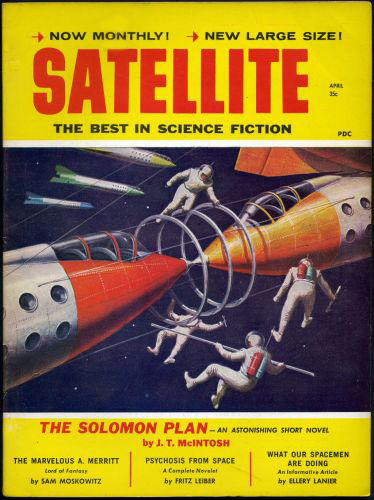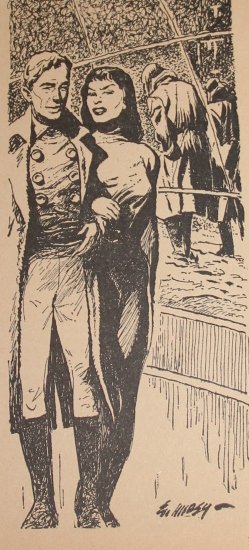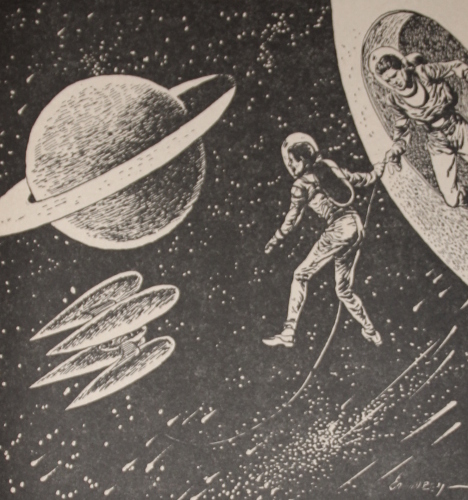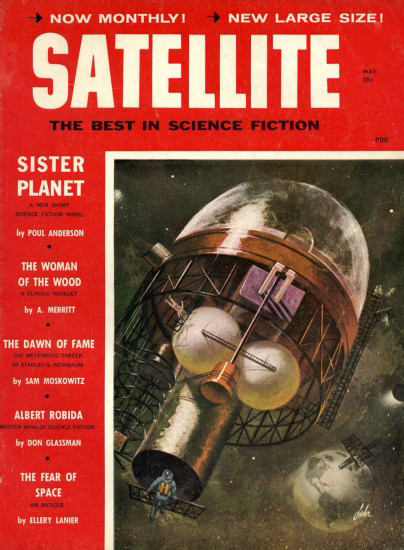
It's another one of those bittersweet months, much like when I discovered IF only to see it die.
This month's Satellite (the best in science fiction) is a fair bit better than last month's issue, which makes the magazine's fate all the more tragic. But we'll talk about that at the end.
The lead tale, Sister Planet, by Poul Anderson, is excellent–except for the last two pages. I strongly recommend simply stopping before reading the end. It takes place on Venus, specifically an ocean-planet version. There is too little oxygen to breathe, and the air is eternally muggy and over-warm. Yet men (not women, at least not yet) populate a floating base to conduct science and to trade with the natives. As one would expect, the Venusians are not at all humanoid; their closest terrestrial analog is the bottlenose dolphin, cute, playful creatures. They have worked out a trade deal with the humans–art and tools for Venusian fire gems.
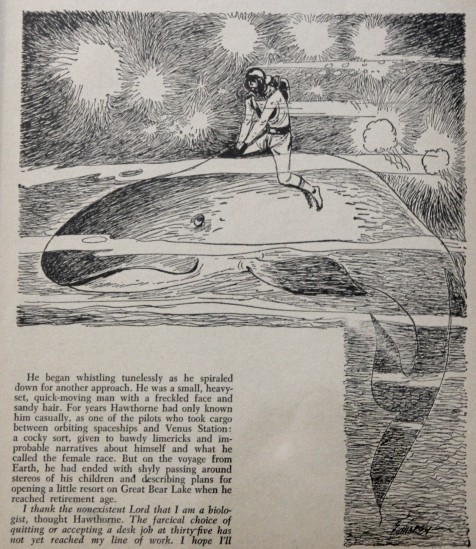
The characters are well-realized, the descriptions lush and poetic, and the scene in which a Venusian takes the protagonist for a ride down to the underwater city of the cetoids is absolutely spellbinding. Following which, there is a fine discussion of the pros and cons, moral and economic, of opening Venus up for colonization at the expense of its sentient denizens. There is also a lot of interesting geophysics, the kind I've come to associate with Anderson, who is a trained scientist.
But then the end… it's a complete pill, and it makes no sense. Such a shame. Thankfully, one can skip the last portion with little ill effect.
E Gubling Dow, by Gordon Dickson, is something of a second-rater. An egg-like being crashes to Earth in a spaceship, is rescued by a couple of rural types, and dies slowly, agonizingly, from its wounds. Sad and unpleasant.
On the other hand, the non-fiction column continues to be excellent. This month's feature (by Sam Moscowitz) spotlights the short but prolific life of Stanley G. Weinbaum. It's nearly unbelievable that this fellow wrote so much in just one year's time before his untimely death. A short-short of Weinbaum's is included at the back of issue–it's called Graph.
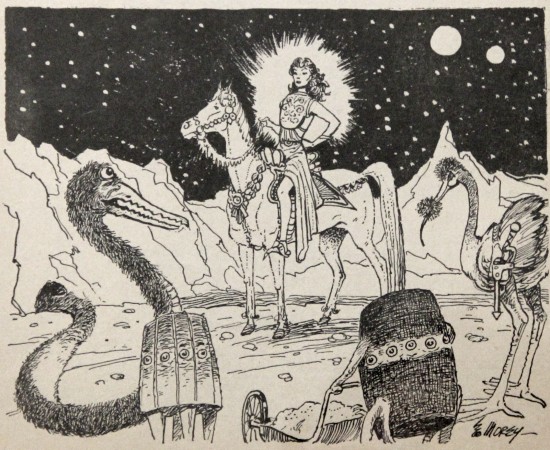
The other non-fiction piece, on French fantasist Albert Robida (by Don Glassman), is a bit florid but educational. I never would have known about this 19th century poor-man's Verne otherwise.
Oh, and there's a silly short non-fiction piece by Ellery Lanier speculating that the reason "real" scientists haven't ventured a design for a hyperspace drive is because they are too terrified of the great unknown. Right.
If you've ever been in a relationship with an over-needy person (what my friends and I knowingly call a "black hole of need") then the plot of Robert Silverberg's Appropriation will ring true. Clingy aliens come within an ace of consumating a psychologically unhealthy relationship with a set of human colonists, but the terrestrials are saved by a bit of bureaucratic chicanery. The best part of the story is the empathic aliens.
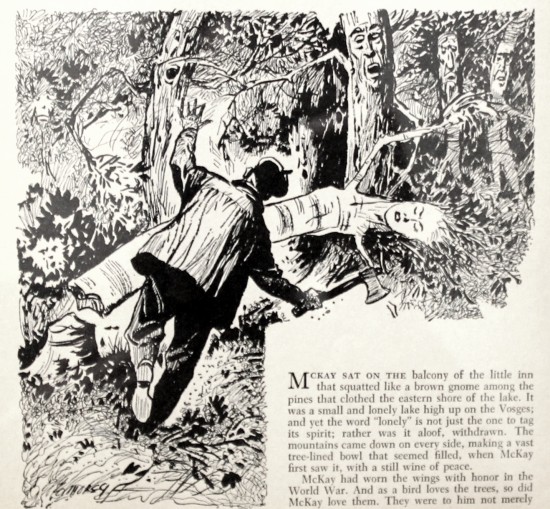
Last, but definitely not least, is a beautifully atmospheric story about a Great War veteran and the French wood he falls in love with. The Woman of the Wood, by A. Merritt, naturally has a twist: the trees are really dryads engaged in a centuries-long slow war with the French peasants who occupy the same land. Really good stuff.
With an issue that started and ended so well, not to mention the advertisements for a new Frank Herbert story and a biography of Hugo Gernsback, I was really looking forward to picking up the June edition. But shortly after picking up this issue and last month's, I learned that publisher Leo Margulies has tossed up the sponge. Satellite joins the long list of science fiction publications that has recently disappeared. I'm even told that the June issue was printed, but that it's not going to be distributed. What a treasure that would be to find.
As sad as that is, at least I still have that stack of Galaxy novels to get through. And next up, provided there are no new space spectaculars, I'll be previewing the movie I saw last week with my little girl. I know, I know. I'm an irresponsible dad, not for taking her to see sci-fi horror films, but for taking her to see bad ones.
So stay tuned. I'm sorry about the widely varying spaces between articles–between work and my hands, it can be tough to stick to a regular schedule. Rest assured, I will keep up the fight.
P.S. And if that pair of teens I met at the record store is reading, thanks for joining the (small) club!
(Confused? Click here for an explanation as to what's really going on)
This entry was originally posted at Dreamwidth, where it has comments. Please comment here or there.

